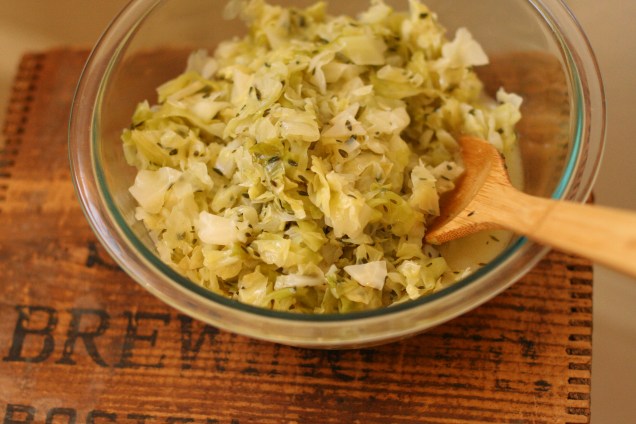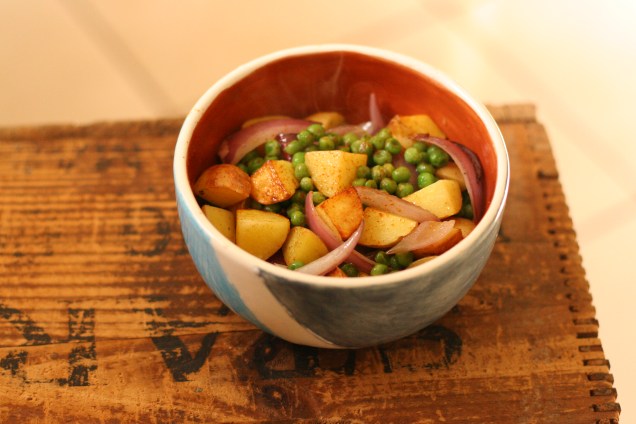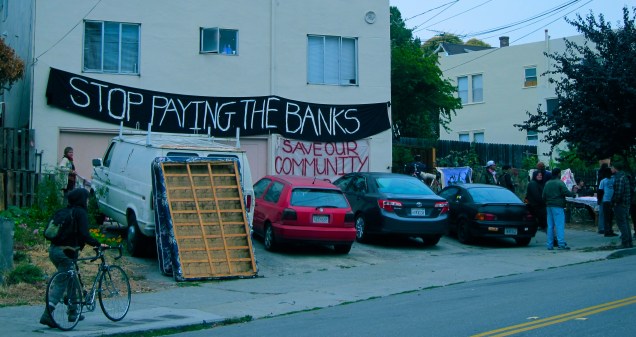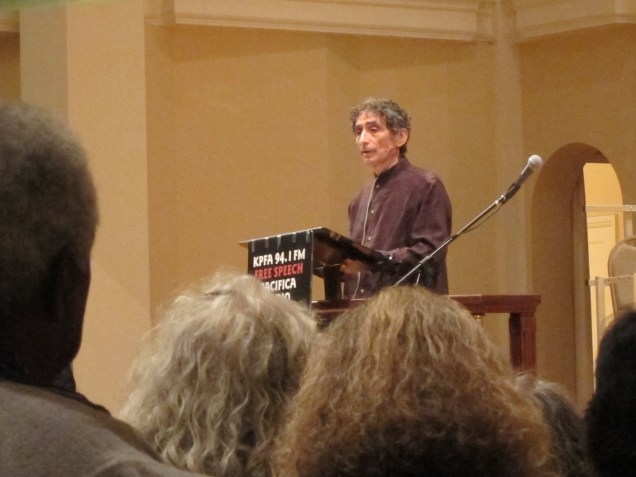chickpea stew and herby quinoa in the morning.
Cooking
Fall Foods
Butternut squash ravioli with garlic, olive oil, crushed red pepper, and baby arugula.
It’s not autumn without this old favorite.
Also seen here.
Honeycrisp apples. Ideal.
I need some autumn inspiration for the kitchen! What are your favorite simple fall dishes? (Or complex — I may not have time to make it, but I’d love to hear about it.)
Workaholics
There’s an ant massacre in my freezer.
I’ve never seen anything like it. Reminds me of the D-Day stencils of 9,000 dead soldiers, just done in Normandy last week.
Poor guys. The strangest part is that when the swarm and frosty die-off began, there was nothing even IN the freezer. Really, nothing. Three fingers’ worth of ginger and an old bag of ice from my housewarming brunch — that’s it.
At first I thought the ants might want the water in the ice, but then they could have just stormed the sink where there’s plenty pooling in the undone dishes. On the freezer floor you can see a drip of some caramel-looking substance (ice cream?), but the pattern of the tiny corpses doesn’t suggest the spill as the focus or destination.
On the bright side, now there is food in the freezer. Because I made a trip to the real grocery store, rather than a corner store run, and for the next few days my dinners will graduate from chips-and-salsa to ravioli-in-jarred-sauce or saag-paneer-heated-in-the-oven.
If you know me, you know that this is a sorry state, and somewhat unusual. I like to cook. Hell, half this blog consists of cooking photos.
The simplest explanation is overwork. Too many projects, paid and unpaid. I finish work, exhausted, and rush off to a meeting or plop down to edit a political video. By the time I get hungry, my body is at a total loss for what it wants to eat. I sit and stare into space, trying to key into whether it’s soup or tofu or salad or what. I end up with chips and salsa.
I always wondered how my mother did it: working more than full time and feeding us every night. She used lots of cans and boxes. Dinty Moore beef stew. Frozen peas (which I still love). Stove Top stuffing. Mom didn’t enjoy cooking (unlike me), and though she would grill up fresh chicken or fish, or brown some sausage to throw into the Ragu spaghetti sauce, the main objective of dinner was efficiency. I get it now.
But what doesn’t make sense is why she should have had to work so hard — why any of us should have to work as long and hard and anxious as we do. Shouldn’t we have all the time in the world to cook and feed each other, if we want to? I mean, listen. People used to have to write everything out By Hand. Deliver it on horseback. Then came the printing press, the personal typewriter, and now the computer and internet. We can work a bajillion times faster, more efficiently. But instead of everyone doing less work and enjoying more free time to fucking cook and relax, the people with jobs get squeezed more and more, work longer and harder, and the ones who can’t find a job… good luck to you.
Work, work, work, then die — in a freezer. Hunting for who even knows what.
Offerings
Ginger-braised kale with curried chickpeas and toasted coconut.
feeling so scattered lately! creeping overwhelm, dropping some things, hiding from others.
amazing people around me, but the thought of trying to keep up with everyone makes me twitch a little.
projects — grad school — paid work with Buddhist Peace Fellowship (climbing toward a setup where more people can be compensated for their work) — solidarity with a long-term campaign to democratize a union, keeping revolutionary politics at the center — political meetings that meld seamlessly into feliz cumple fried chicken dinners and laughter, laughter — reading the communist manifesto out loud at alameda beach with a friend — vivid, vivid dreams — monkey-mind internet reading — still looking for the thing that is mine to give, mine to focus on.
meanwhile, i cook to come back to myself — a self seasoned with others. today’s kale was saqib, sierra, salima, aneeta, ryan…
may you (yes, you) be safe, may you be well fed, may you know you are loved, may you defend others fiercely, may you know your gifts, your historical context, your people and your purpose.
Miso Soup
Tonight a friend who lives nearby, and who I haven’t seen in a while, came over to spend time because there’s been some violence in their house and they are feeling unsafe there. After we talked and drank tea and worked quietly at our computers, they left and I made myself an easy dinner: miso soup with sweet potato, spinach, and red onion. It reminded me of this poem, shared with me a few years ago.
Ame ni mo Makezu
by Kenji Miyazawa
not losing to the rain
not losing to the wind
not losing to the snow nor to summer’s heat
with a strong body
unfettered by desire
never losing temper
always quietly smiling
every day four bowls of brown rice
miso and some vegetables to eat
in everything
count yourself last and put others before you
watching and listening, and understanding
and never forgetting
in the shade of the woods of the pines of the fields
being in a little thatched hut
if there is a sick child to the east
going and nursing over them
if there is a tired mother to the west
going and shouldering her sheaf of rice
if there is someone near death to the south
going and saying there’s no need to be afraid
if there is a quarrel or a lawsuit to the north
telling them to leave off with such waste
when there’s drought, shedding tears of sympathy
when the summer’s cold, wandering upset
called a nobody by everyone
without being praised
without being blamed
such a person
I want to become
It sounds appealing, in a way, to melt into the “woods of the pines of the fields,” to become free from suffering by squarely facing pain, by knowing pain intimately, every day. To be “called a nobody by everyone;” to barely exist; to exist as friendly landscape, as natural shelter.
But is there a place here for community of emancipation?
Problems in this poem are either small enough to impact as an individual (through personal sacrifice, like The Giving Tree), or so huge (pre-industrial weather, no thought of a ‘climate change’ to reverse) that there is nothing to be done. What about the problems in the middle? Small enough that human action can have some impact, but big enough that it takes many many many humans, properly coordinated, to do it?
Isn’t that another way of feeling like a “nobody?” Seeing patterns of harm, knowing they can be stopped, but being unable to do it yourself, or even with your intrepid cohort?
I know the point is an attitude, an orientation toward the inevitable harshness of life. We feel, we cry, we try our best. We allow ourselves to be permeated by what exists, because this, as much as the ability to control or affect our environment, is part of our highest potential.
But I don’t know. I like to be effective. Don’t you?
Cabbage with Thyme, White Pepper, and Orange Juice
Whipped this up for my friend Saqib’s birthday party — a feastful affair that included a fucking fantastic soyrizo-grits-and-caramelized-onion casserole — and had my first occasion to use the thyme that has made its way over from Vanessa’s garden to mine.
 I’d meant to pick up some habañero peppers at the store (capsicum cousin to the scotch bonnet peppers more traditionally used in Jamaican cabbage-and-thyme dishes), but forgot, so in went a hefty dose of white pepper, plus orange juice. The combo brought a bit of that bright, citrusy heat that comes from habañeros. Not bad! Next time I think I’ll throw some carrots in there. Steamed cabbage isn’t my favorite to look at — needs jazzing up to let prettiness match tastyness.
I’d meant to pick up some habañero peppers at the store (capsicum cousin to the scotch bonnet peppers more traditionally used in Jamaican cabbage-and-thyme dishes), but forgot, so in went a hefty dose of white pepper, plus orange juice. The combo brought a bit of that bright, citrusy heat that comes from habañeros. Not bad! Next time I think I’ll throw some carrots in there. Steamed cabbage isn’t my favorite to look at — needs jazzing up to let prettiness match tastyness.
And what a gorgeous party, my goodness. Black and brown, hella queer, multi-generational, turquoise walls, dishwashing shifts, deliciousness.
Lunch
Waged & Unwaged Labor Struggles Are Still Feminist Fights, Y’all
 inspired by Silvia Federici’s talk tonight — where she gave a feminist take on the financialization of reproductive work, as well of an overview of reproductive sector struggles from elder warehousing to education. came home, ate cookies, put beer in the fridge. then found this resonant testimonial on the web page of Mujeres Unidas y Activas (MUA), about its Caring Hands Workers’ Association.
inspired by Silvia Federici’s talk tonight — where she gave a feminist take on the financialization of reproductive work, as well of an overview of reproductive sector struggles from elder warehousing to education. came home, ate cookies, put beer in the fridge. then found this resonant testimonial on the web page of Mujeres Unidas y Activas (MUA), about its Caring Hands Workers’ Association.
“Before I took the Caring Hands training, I was economically dependent on my husband. He controlled me by determining how much money I would have. He refused to give me money for the bus, so I couldn’t go out. After I took the training, Caring Hands helped me to find work and I began to earn my own money. Now, I am free.”
—Caring Hands Graduate
Poignant evidence supporting Federici’s assertion that, contrary to the criticisms of the 1970’s Wages for Housework Campaign, efforts to win remuneration for women’s reproductive labor weren’t tainting the private sanctuary of the home. Rather, domestic social relations were already constructed around the withholding of the wage from reproductive and care work, typically done by women and always systematically devalued.
In other words, the introduction of wages for housework wouldn’t distort or shape social relations in the home any more than the absence of wages for housework already does.
Good food for thought! Now to drink one of these beers, plan my garden with a friend who’s helping me, and do a little organizing work before bed.
night, y’all.
Things That Make Me Go Mmm
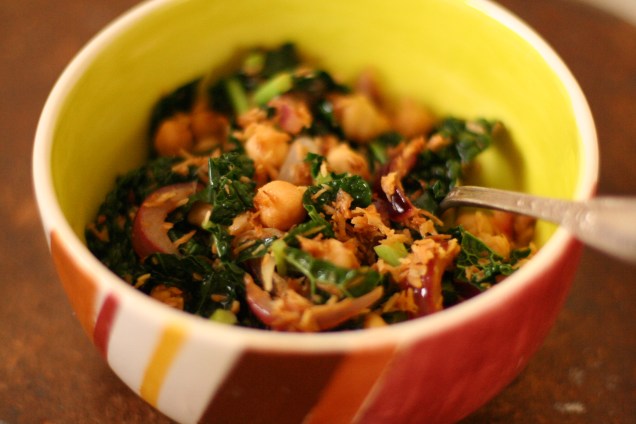

It’s shaping up to be another day of food and friend fotos, and I’m beginning to feel self-conscious.
So trivial! not militant! argh.
Fortunately, the wonders of digital archiving help refresh me on why I started this particular blog in the first place, nearly four years ago. A quick digital rifling through the earliest files, and I come across this:
You may have noticed that Kloncke contains lots of pictures. Pictures of mundane things, like the apartment. And Brassica oleracea. There’s not a lot of information, or opinion, or blueprints for fomenting feminist revolution. No hard reportage. Walking away from the world of political New Media, with its fast-paced news addictions and adrenaline rushes, is not easy on the ego, I can tell you that much. In comparison to what I used to write about, the things I now post seem frivolous and bourgie. Sharing them requires a good amount of pride swallowing: it was much easier, honestly, to write about, say, connections among environmental nativism, sexism, and anti-immigration. But my dear friend Ellen, in an email yesterday, beautifully expressed a purpose of the site that I hadn’t quite articulated to myself:
I was just reading through your blog and thinking about how healing ourselves necessarily involves elemental things like food (one of my too-many jobs right now is all about food policy, actually, and I love how it’s gently pushed me toward feeding myself better) and family and good lighting (good work w/ your place!!) and practical skills and walking/biking along riverbanks.
Ellen is right: healing is largely about getting down to basics. Which brings us back to the question of reality (what could be more basic?) and how on earth a cybernetic hallucination could bring us closer to it.
Reality isn’t a place so much as a relationship, or an attitude that each one of us can take toward what’s around us. In my experience, it’s a mixture of calm and curiosity, a kind of lilting interest. It welcomes and enjoys pleasure, but doesn’t obsess over it. It recognizes and honors pain, but doesn’t demonize it. This orientation reflects reality not because it’s one-dimensionally true, but because it allows us to see what’s really going on.
Now, what’s really going on includes, as we know:
- oppression
- violence
- injustice
- resistance
- organizing
- solidarity
- things more important than photos of what yours truly is having for breakfast
Again, this blog isn’t about acting on these Big Things. Nope. But it is about small-r reality: trying to pay attention. Joyful attention. To the things that happen offline. And as a warm, friendly space dedicated to embracing ordinary wonders, I hope it can help restore us for whatever struggles we undertake.
A list. A hallucinatory diary of genuine gratitude. A different spin on the reality-based community.
Four years later, I’ve come so far, to the exact same spot.
Things more important than what I’m having for breakfast.
Well, that’s why they call it practice, I s’pose.
Revolutionary or not, “embracing ordinary wonders” is precisely what I’ve been feeling disconnected from, these past few months. And as we know, contentment is only partly about how many Wanted Things happen to us. It’s also (or even mostly) about how much gratitude and equanimity we generate. (Hence book titles like Sylvia Boorstein’s Happiness Is An Inside Job.)
Objectively, GREAT THINGS HAVE BEEN HAPPENING TO AND AROUND ME!
Hardworking organizers and wonderful people swim in the seas I swim in!


I get to go to eviction defense actions and they are interesting and successful!
(See how I snuck a militant direct action in there? Pride: sometimes you get the better of me.)
But I seem to be living as a hungry ghost. No matter how much beauty surrounds me, it’s not enough. I am not enough.
Speaking of both (a) hungry ghosts and (b) great things happening to and around me, just this Wednesday night I had the chance to see a talk by the incredible Dr. Gabor Maté, author of, among other books, In the Realm of Hungry Ghosts: Close Encounters with Addiction.
His lecture blew my mind on a few levels (maybe a whole nother post on that, sometime). But one of points he made that hit home hardest for me was the observation that political engagement, or activism, can actually serve as a kind of addiction: insofar as we use it to try to fill a personal sense of lack. He gets at a similar idea in this interview about the Hungry Ghosts book:
Question: The title of your book has its origins in the Buddhist Wheel of Life. In the Hungry Ghost Realm, people feel empty and seek solace from the outside, from sources that can never nourish. In what ways is our culture trapped in this realm? What can society learn from drug addicts who take the feelings of lack that everyone has, to the extreme?
Gabor Maté: Much of our culture and our economy are based on exploiting people’s sense of emptiness and inadequacy, of not being enough as we are. We have the belief that if we do this or acquire that, if we achieve this or attain that, we’ll be satisfied. This sense of lack and this belief feed many addictive behaviors, from shopping to eating to workaholism. In many respects we behave in a driven fashion that differs only in degree from the desperation of the drug addict.
I don’t have the presence of mind to write too much on this tonight, but I want to reflect on this observation from my own life:
When I feel no pressure to be or do any particular thing, creative growth and learning flow freely, but much of my activity tends to be apolitical. Eventually, the urge for political engagement either suddenly arises, or creeps back in like a tide.
Once I get invested in the idea of being a student of political organizing, or being a revolutionary, that free-flowing sense of self-sufficiency dies away, and I find myself wanting/needing to improve and measure up, more and more. Never enough.
Obviously, the desire to improve is not a bad thing — and I know what the healthy, natural, yet vigorous version feels like. It’s just that I don’t know what it feels like in the political realm.
And THAT probably has more to do with me, and my own issues, than ‘the political realm’ itself.
And with that, I wish you a good, good night.
love,
katie
Arepas Brunch

Gratitude for:
lessons on filling and eating arepas;
pan-toasted, pestle-ground cardamom
for sprinkling into cocktail glasses;
how do so many smiles
fit under one roof?
and so many curls
(and kinks)
how did these women learn to dance
and drum
(ah, before my eyes
people teach each other salsa
in the kitchen);
“are you a lesbian?” he asks shyly,
hoping for a no;
“you know she’s single,” auntie whispers;
people teach each other
new ways to move.











